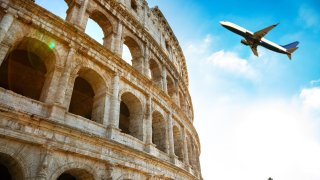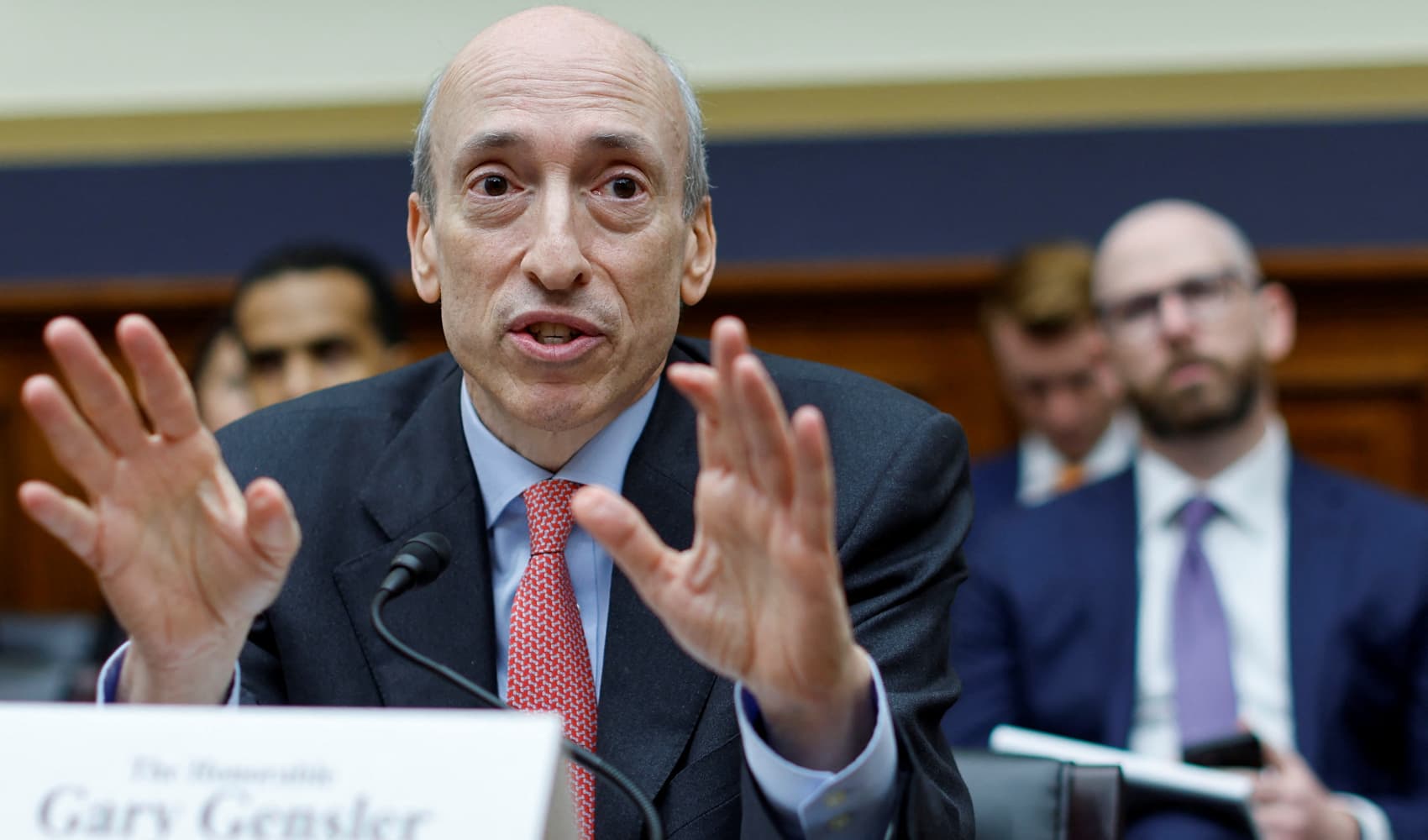
- American, Delta and United have all quickly added new trans-Atlantic flights as European destinations reopen.
- Carriers usually announce foreign destinations several months ahead to hire employees and market to consumers.
- The three airlines are trying to drum up revenue and stem losses that have topped $32 billion so far.
Major airlines are racing to add new trans-Atlantic service now that tourist-reliant countries like Croatia, Greece, Iceland and Italy have started allowing visitors from the U.S. and other nations for the first time in a year.
Delta Air Lines started service to Reykjavik, Iceland from Boston on May 20. It then restarted nonstops to the Icelandic capital from Minneapolis a week later. Service from New York started May 1. United Airlines' first service to Dubrovnik starts July 1 from its Newark, New Jersey hub. The airline plans to add July-October flights to Athens from Washington-Dulles next month on top of its service from Newark that started earlier this month.
Carriers are also beefing up schedules to Spain, Portugal and Italy as those countries open up, too. American Airlines, for example, pushed up service from Philadelphia to Athens to the second half of August, and to Rome from both Philadelphia and Chicago in September — routes it expected to resume next summer.
Get a weekly recap of the latest San Francisco Bay Area housing news. Sign up for NBC Bay Area’s Housing Deconstructed newsletter.
The European Union this week recommended adding the United States to a list of safe origin countries, which could make it easier for U.S. visitors to enter the 27-country bloc this summer. The EU banned them since early in the pandemic and the change is fueling airlines' efforts to avoid another lost European summer.
The quick flight launches show airlines' scramble to drive up revenue and stem pandemic losses that total more than $32 billion for Delta, United and American combined.
Airlines generally like to unveil new international destinations with fanfare several months and sometimes close to a year in advance. The long lead time gives airline marketing departments time to spark customer interest with campaigns featuring images of sun-soaked cobblestone streets or sweeping views of the Adriatic Sea. It also gives government affairs and airport teams time to secure permits and contractors to handle everything from check-in to wheelchair service to fuel on the ground long before the first flights take off.
Money Report
That's out the window in the pandemic era. Airlines instead have been waiting for green lights from governments to lift travel restrictions to help rebuild international networks. Travelers have also waited longer before booking because of uncertainty caused by the pandemic.
American would normally take about a year to launch a new international route like its new Miami to Tel Aviv, said Brian Znotins, American Airlines' vice president of network and schedule planning. Planning new routes involves hundreds of employees, he said.
"Those timelines have all been compressed. People weren't booking eight and 12 months in advance. They were booking two to three months in advance," said Znotins. His team is "moving at light speed."
Patrick Quayle, United's vice president of international network and alliances, said demand for Dubrovnik Croatia, a new market for United, was so high after the airline announced it, he called up the carrier's vice president of global airport operations, David Kinzelman, with a request: "I would like to start it a week earlier. Can you do it?"
"We're loading it relatively late and we're putting it out there on the hope that people will book," Quayle said. He said that demand for Croatia, Greece and Iceland has "dwarfed" demand to the U.K., which is usually its biggest trans-Atlantic destination, "because those three countries were first out of the gate."
Domestic leisure bookings this summer are near 2019 levels — with fares to match — but usually lucrative international travel continues to lag as many travel restrictions remain in place. That has forced U.S. carriers to focus more on U.S. destinations, where, in some cases they've deployed their largest jets that would normally fly across oceans.
United said its international capacity this July is 36% of its total, down from a 45% share in 2019. And its domestic flights are only a quarter lower than two years ago, while international capacity is off by twice as much.
But demand is rising for trips to Europe. Fare-tracking app Hopper said Friday that searches for Europe flights have nearly doubled from this time last month. Travel site Kayak said searches for European travel searches are down 11% compared with 2019 and that July airfares between the U.S. and Europe are averaging $929, about 6% below fares two years ago.
Even as airlines add more service to Europe, demand and service are still off 2019 levels because the U.S. still bars most non-citizens who have been either in the European Union or the U.K. in the last two weeks, despite pleas from the airline and travel industry to governments on both sides of the Atlantic. U.S. citizens can visit the U.K. but still have to quarantine.
But airlines are looking for any flights they can launch, and their starting point is very low.
Passenger volumes between the U.S. and the top 25 destination countries in May were down more than 90% from 2019, with numbers between the United States and Italy, the U.K. and Spain down 95% or more, according to Airlines for America, an industry trade group that represents most large U.S. carriers.
Covid travel restrictions have also posed challenges to airlines as they set up new flights with organizing on-the-ground facilities and staff remotely.
Kinzelman, United's global airports vice president, said that was the case ahead of the airline's launch of Dulles to Accra, Ghana flights this year.
"We couldn't get people who normally would travel in ahead to do site audit and station visit," he said. "In many cases just videos like this where we would say: Take your camera and let's walk through the space. What's a customer experience going to look like? And it was super helpful."
Kinzelman added the airline wouldn't want to do that indefinitely but said "necessity is the mother of invention."






